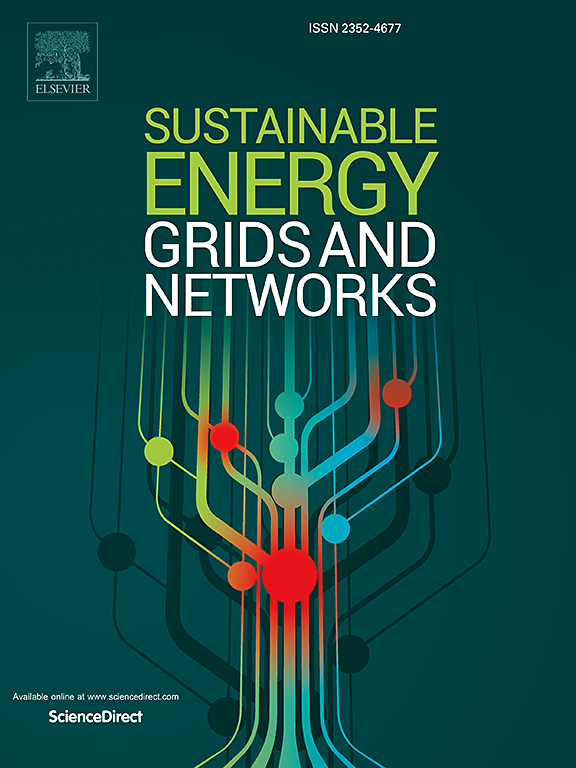Probabilistic imputation of missing offshore wind speed based on conditional diffusion models
IF 5.6
2区 工程技术
Q2 ENERGY & FUELS
引用次数: 0
Abstract
The growing demand for reliable renewable energy underscores the pivotal role of offshore wind power, renowned for its consistent and robust wind speeds. However, harsh weather conditions often lead to sensor failures and communication disruptions at sea, resulting in missing wind speed data. Such data gaps significantly hinder the accuracy of wind power forecasting, power curve modeling, and energy assessments of wind turbines—critical tasks for efficient operation and maintenance. To address these challenges, this work introduces an innovative imputation framework for missing wind speed data in offshore wind farms, leveraging a conditional diffusion model. By framing the imputation as a conditional generation problem, the approach employs multi-head attention mechanisms and graph convolutional networks to effectively capture spatiotemporal correlations and generate context-aware information. A denoising network then transforms random noise into accurate estimates for the missing values, while adaptive bandwidth kernel density estimation (ABKDE) is used to estimate the distribution of missing wind speed, providing probabilistic intervals for imputation. Extensive experiments on real-world datasets across a variety of missing data scenarios demonstrate that the proposed method outperforms existing benchmarks. Not only does it yield precise deterministic imputation results, but it also quantifies uncertainty by providing probabilistic intervals for the imputed values. This significantly enhances the reliability and accuracy of wind speed imputation. Experiments have demonstrated that the proposed method is particularly effective in handling complex missing data patterns, such as those caused by long-term sensor failures or extreme weather events, and it can improve the performance of downstream prediction tasks. This work provides a novel and robust solution for missing data imputation in offshore wind farms, offering more reliable and interpretable results for downstream tasks, including risk management and wind power optimization.
基于条件扩散模型的海上风速缺失概率反演
对可靠的可再生能源日益增长的需求凸显了海上风电的关键作用,海上风电以其稳定而强劲的风速而闻名。然而,恶劣的天气条件经常导致传感器故障和海上通信中断,导致风速数据丢失。这样的数据差距极大地阻碍了风电预测、功率曲线建模和风力涡轮机能源评估的准确性,而这些都是高效运行和维护的关键任务。为了应对这些挑战,本研究利用条件扩散模型,为海上风电场中缺失的风速数据引入了一种创新的imputation框架。该方法采用多头注意机制和图卷积网络,有效地捕获时空相关性并生成上下文感知信息。然后利用去噪网络将随机噪声转化为缺失值的精确估计,同时利用自适应带宽核密度估计(ABKDE)估计缺失风速的分布,为插值提供概率区间。在各种缺失数据场景的真实数据集上进行的大量实验表明,所提出的方法优于现有的基准测试。它不仅能产生精确的确定性输入结果,而且还能通过提供输入值的概率区间来量化不确定性。这大大提高了风速估算的可靠性和准确性。实验表明,该方法在处理由传感器长期故障或极端天气事件引起的复杂数据缺失模式方面特别有效,并且可以提高下游预测任务的性能。这项工作为海上风电场的缺失数据输入提供了一种新颖而强大的解决方案,为下游任务提供了更可靠和可解释的结果,包括风险管理和风力发电优化。
本文章由计算机程序翻译,如有差异,请以英文原文为准。
求助全文
约1分钟内获得全文
求助全文
来源期刊

Sustainable Energy Grids & Networks
Energy-Energy Engineering and Power Technology
CiteScore
7.90
自引率
13.00%
发文量
206
审稿时长
49 days
期刊介绍:
Sustainable Energy, Grids and Networks (SEGAN)is an international peer-reviewed publication for theoretical and applied research dealing with energy, information grids and power networks, including smart grids from super to micro grid scales. SEGAN welcomes papers describing fundamental advances in mathematical, statistical or computational methods with application to power and energy systems, as well as papers on applications, computation and modeling in the areas of electrical and energy systems with coupled information and communication technologies.
 求助内容:
求助内容: 应助结果提醒方式:
应助结果提醒方式:


